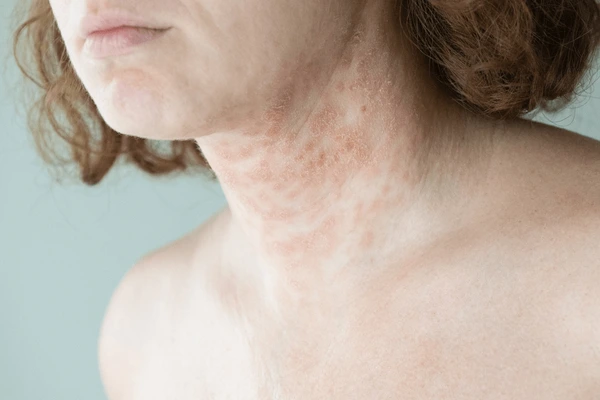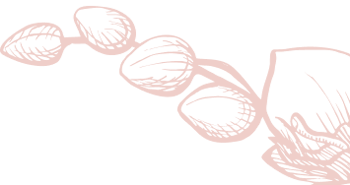
Eczema
Manage chronic eczema effectively at The Velvet Skin Centre, Indira Nagar, Lucknow. Our experienced skin doctor provides personalized care and advanced treatments for long-term relief and healthy skin.
Book Appointment NowCall to book Appointment +91 8002558860

Manage chronic eczema effectively at The Velvet Skin Centre, Indira Nagar, Lucknow. Our experienced skin doctor provides personalized care and advanced treatments for long-term relief and healthy skin.
Book Appointment NowEczema is a problem in which patches of skin turn over into inflamed, itchy, cracked, and rough. Some types can also cause blisters.
Eczema makes your skin itchy, red, dry and cracked. The real causes of Eczema are still unknown, but some environmental factors aggravate the condition. It is also one of the reasons Eczema can be a genetic factor. Therefore, relieving the patient requires lifestyle, habits, and medical management changes. At Dr Asma, we provide successful eczema treatment in Lucknow (Indira Nagar, Thakurganj, Chowk) by the best eczema specialist doctor, which typically results in full elimination of eczema symptoms and, therefore, relief from existing discomfort and irritation.
Most people use the word Eczema when referring to atopic dermatitis, the most common type. Atopic refers to immune system conditions, including atopic dermatitis, asthma, and hay fever. The word relates to dermatitis and refers to inflammation of the skin.
Specific foods, such as nuts and dairy, can trigger signs of Eczema. Environmental catalysts can include smoke, pollen, body soaps, and perfumes. Eczema is not transferable.

Dr. Asma provides specialized care for eczema treatment in Lucknow at The Velvet Skin Centre, Indira Nagar. Eczema causes itching, redness, and skin inflammation that affects daily life. Our personalized treatments control flare-ups and restore skin health using advanced medical therapies and skincare guidance. With professional expertise, patients achieve long-term relief, improved comfort, and healthier, irritation-free skin.
As we already said, the root cause of Eczema is unknown, but it is a kind of allergy. There are definite triggers that aggravate the allergy.
1. Harsh chemicals – may be in the form of soap, detergents, shampoo or other cosmetic products.
2. One of the apparent symptoms of Eczema is dry and itchy skin rashes. It is advisable to keep your skin moist. However, low and high humidity must be avoided as one may cause excessive dryness, while the other causes itching due to sweating.
3. People with Asthma are more prone to Eczema.
4. Other allergies such as food allergies, allergies from pet hair and dust mites also worsen the effects of Eczema.
5. Stress is another major trigger for Eczema, and it may compel the need for itching.
In most cases, eczema symptoms are mild. The most common symptoms of Eczema include:
Someone with mild Eczema may require more intensive treatment to reduce their symptoms. Continued rubbing and scratching can also lead to skin infections.
In People of Color, an eczema rash may appear grey or brown. It can make outbreaks harder to see.
Yet, People of Color who get Eczema may get dark or light skin patches even behind eczema symptoms go out. These can last a prolonged time. Most Doctors call these patches hyperpigmentation and depigmentation or hypopigmentation.
A dermatologist can evaluate these patches, which may respond to treatments like steroid creams.
The following atopic dermatitis symptoms are common in babies under the age of 2:
The following atopic dermatitis symptoms are common in children aged two and above:
The following atopic dermatitis symptoms are common in adults:
Adults who developed atopic dermatitis as children but no longer experienced the condition may last have dry or easily annoyed skin, hand eczema, and Eczema on the eyelids.
The formation of skin impacted by atopic dermatitis will count on how much a person scratches and whether the skin is infected. Scrape and rubbing can further irritate the skin, increase inflammation, and worsen the itching.
First, you need to understand what factors trigger this skin condition and avoid those factors at any cost to relieve yourself. At Dr Asma, Dermatologist in Lucknow, we utilize the following treatment methods:
1. If the reason for Eczema is chemical based, then Dr Asma will provide you with lifestyle modification tips, like using suitable hand washes, disposable gloves, barrier creams and moisturizers, mild soap, cleansers and many more., to keep the skin moist and to avoid the dryness. So, eventually, other symptoms will also vanish.
2. Depending on your specific requirements, we provide topical treatments for this condition, such as topical corticosteroids and calcineurin inhibitors.
3. Oral Medications if need be
Atopic Eczema is currently considered to be related to bad production of skin protein called filaggrin in many cases.
During the procedure, a layer of liquid Carbon is used on the skin, which absorbs dead skin cells and impurities. Then, a non-ablative laser breaks down the Carbon, removing dead skin cells, contaminantSweat, soap and clothing. Cause of Environmental factors plays a significant role in initiating Atopic Eczema. It is not uncommon for patients with atopic Eczema to note that sweating during a workout, using harsh detergents, or wearing wool clothes can produce itching and trigger flares of atopic Eczema.
Any patient who has just developed Eczema should understand that it is a skin disease, not just skin deep. It calls for long-term management rather than short-term recovery. There is no shortcut to cure Eczema. Local creams or lotions help only for a short time. Before starting therapy, one should ask one's doctor about this disease's 'long term nature and treatment'.
The main complications are - recurrent bacterial infection, alopecia and scarring if not treated.
Eczema may affect any part of the skin, especially the flexural areas like inside of elbows and knees, scalp, hands, around the neck and another part. In the case of infantile Eczema, the most common areas are the face, cheeks, and folds of joints.
No, it is not contagious.
About
About
With multiple skin and hair care clinics across Lucknow, including The Velvet Skin Centre led by Dr. Asma – the best skin doctor in Lucknow and a trusted hair specialist doctor in Lucknow – we make expert dermatological treatments easily accessible, ensuring you receive the best care close to home.
Phone: +91 8002558860
Phone: +91 8002558860
Phone: +91 8002558860

Copyright @ 2025 The Velvet Skin Centre All Rights Reserved